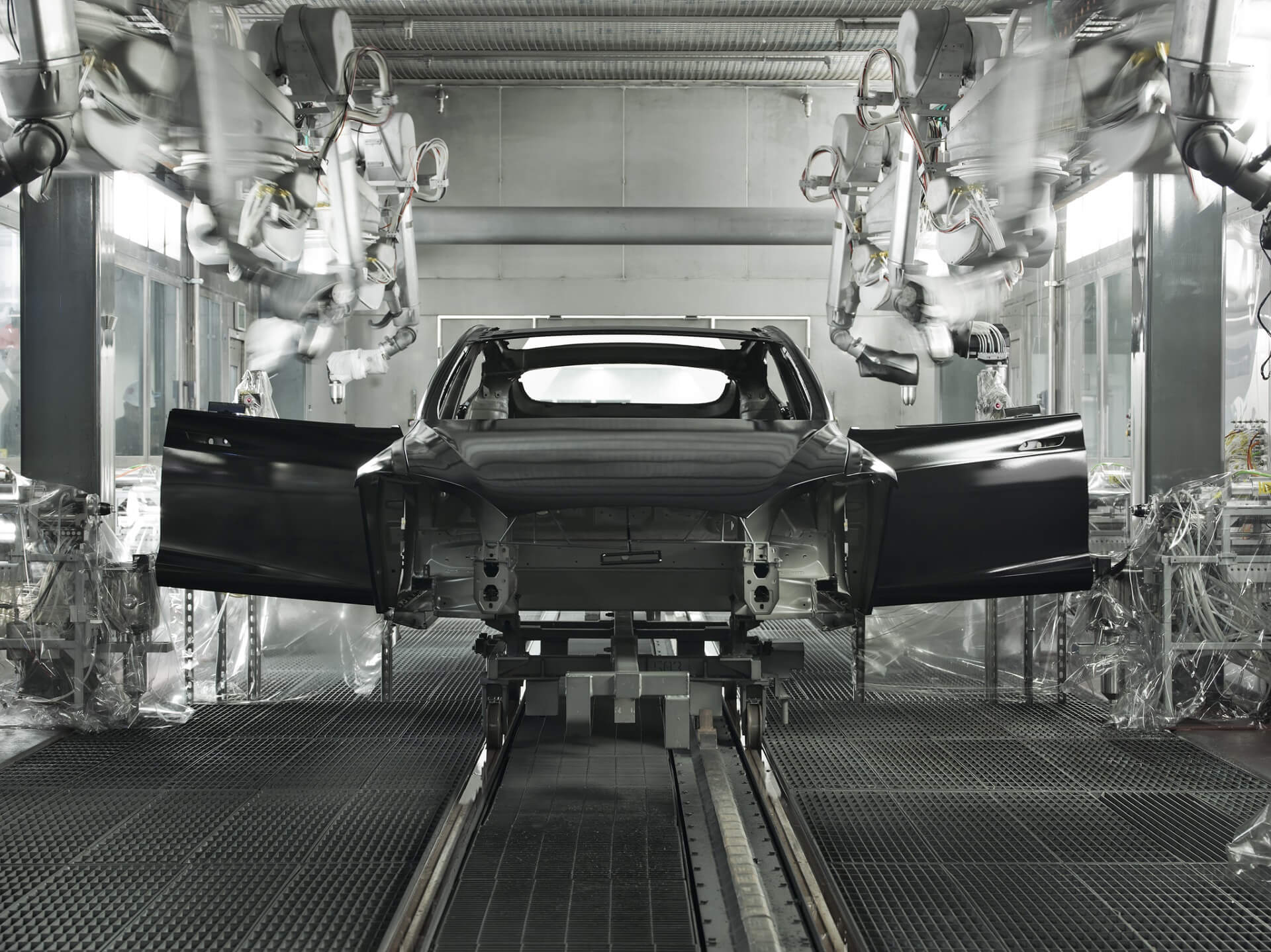ISO/IATF 16949:2016 Certification – Automotive Quality Management System (QMS) | Accredify Global

What is ISO/IATF 16949:2016 Certification?
ISO 16949 (also known as IATF 16949) is the global standard for quality management in the automotive industry. It ensures that automotive manufacturers and suppliers maintain high-quality production, defect prevention, and continuous improvement.
Developed by the International Automotive Task Force (IATF) in collaboration with ISO, this standard integrates with ISO 9001 while focusing on automotive-specific requirements.
With over 90% of top automotive companies requiring IATF 16949 compliance, this certification helps businesses achieve international recognition and supplier approvals.
What is ISO 27001 – Information Security Management System (ISMS)?
ISO 27001 is an internationally recognized framework for managing information security risks, preventing data breaches, and ensuring the confidentiality, integrity, and availability (CIA) of information assets. It provides a systematic approach to identifying security threats, implementing risk controls, and ensuring compliance with GDPR, HIPAA, and other regulations.
Who Needs ISO 16949 Certification?
ISO 16949 certification is mandatory for automotive manufacturers & suppliers, including:
- ✔ Automobile & truck manufacturers (OEMs)
- ✔ Automotive component & spare parts suppliers
- ✔ Plastic, rubber, and metal parts manufacturers
- ✔ Paint, coating, and surface treatment suppliers
- ✔ Electronic system & sensor manufacturers
- ✔ Assembly, logistics, and warehousing companies
Importance of ISO 16949 Certification
With $20 billion lost annually due to defective automotive parts, ISO 16949 helps businesses:
- ✅ Reduce defects by up to 50%
- ✅ Improve production efficiency & supply chain management
- ✅ Ensure compliance with global automotive industry standards
- ✅ Strengthen supplier relationships & increase contract opportunities
ISO 16949 and Its Major Aspects in Automotive Manufacturing
ISO 16949 provides a structured framework for quality control, covering:
- Defect prevention & risk management
- Production process standardization
- Supplier quality management & audits
- Customer-specific requirements & regulatory compliance
- Continuous improvement & waste reduction
The Principles of ISO 16949 Certification
- Process-Oriented Approach – Ensuring efficiency in automotive production
- Defect Prevention & Risk-Based Thinking – Reducing failures and recalls
- Customer Satisfaction & Supplier Collaboration – Meeting OEM & supply chain requirements
- Standardization & Consistency – Creating uniform production processes
- Continuous Improvement & Lean Manufacturing – Minimizing waste & optimizing operations
Checklist for ISO 16949 Certification
- ✅ Implement an Automotive Quality Management System (QMS)
- ✅ Conduct risk analysis & failure mode effects analysis (FMEA)
- ✅ Establish supplier selection & performance monitoring processes
- ✅ Train employees on automotive quality & defect prevention
- ✅ Develop traceability systems for automotive components
Is ISO 16949 Certification Mandatory?
ISO 16949 is not legally required, but it is mandatory for companies supplying automotive manufacturers (OEMs).
Failure to comply can lead to:
- Loss of major supplier contracts
- Product recalls & liability claims.
- Reputational damage & market exclusion.
Services
Benefits of ISO 16949 Certification
- 50% reduction in defective automotive parts & recalls.
- Higher compliance with global automotive OEM standards
- Increased business opportunities & supplier approvals.
- Improved operational efficiency & reduced waste
- Stronger risk management & defect prevention.
Requirements for ISO 16949 Certification
To achieve ISO 16949 certification, companies must:
- Develop a structured Automotive Quality Management System (QMS)
- Ensure compliance with IATF & customer-specific requirements
- Conduct internal audits & performance evaluations
- Implement corrective actions & continuous improvements
- Undergo external audits & third-party certification
Cost of ISO 16949 Certification
Certification costs depend on:
- Company size & automotive supply chain involvement
- Number of production facilities & supplier networks.
- Implementation readiness & training requirements
On average, ISO 16949 certification costs range from $15,000 to $60,000, based on business scope.
Why Choose Accredify Global?
Accredify Global is a leading ISO certification body, operating in 95+ countries, offering:
- ✔ Certified auditors with expertise in the automotive industry
- ✔ 30% faster certification process than competitors
- ✔ Tailored compliance solutions for automotive manufacturers & suppliers
- ✔ 24/7 support for audits, quality control & supplier management
- ✔ Cost-effective certification plans & flexible pricing
PDCA Cycle | Accredify Global
- Plan – to think that what do we need to achieve in our organization
- Do – to execute a planned action which will help us achieve the required objective
- Check – monitor against the standards) (policies, objectives, requirements)
- Action – finally implementing what has been rechecked.
ISO CERTIFICATION. 3 STEPS. 30 DAYS. DONE !! | ACCREDIFY GLOBAL
Accredify Global, we follow a structured and transparent ISO certification process to help businesses achieve international compliance efficiently. Our streamlined approach ensures a hassle-free experience from initial consultation to final certification..
3. Audit Review & Certification
- Objective: Validate your management system through an external audit and achieve certification.
- Actions:
- Conduct an internal audit to ensure readiness for the certification audit, utilizing Accredify Global's auditing tools and resources.
- Schedule and undergo an external audit with Accredify Global's accredited certification body.
- Address any non-conformities identified during the audit with support from Accredify Global's consultants.
- Outcome: Successful certification and ongoing compliance with the ISO standard, with continuous support and guidance from Accredify Global.
Frequently Asked Questions (FAQs) about ISO/IEC 27001 Certification - Information Security Management System (ISMS)
Question : How long does ISO 16949 certification take?
Answer: The process typically takes 12-16 weeks, depending on business readiness.
Question : Is ISO 16949 certification required for all automotive suppliers?
Answer: Yes, most OEMs & Tier 1 suppliers require ISO 16949 certification.
Question : How does ISO 16949 help reduce product recalls?
Answer : It ensures defect prevention, risk assessment & quality control throughout the supply chain.
Question : Is ISO 16949 certification valid worldwide?
Answer: > Yes, it is the global standard for automotive quality management.
